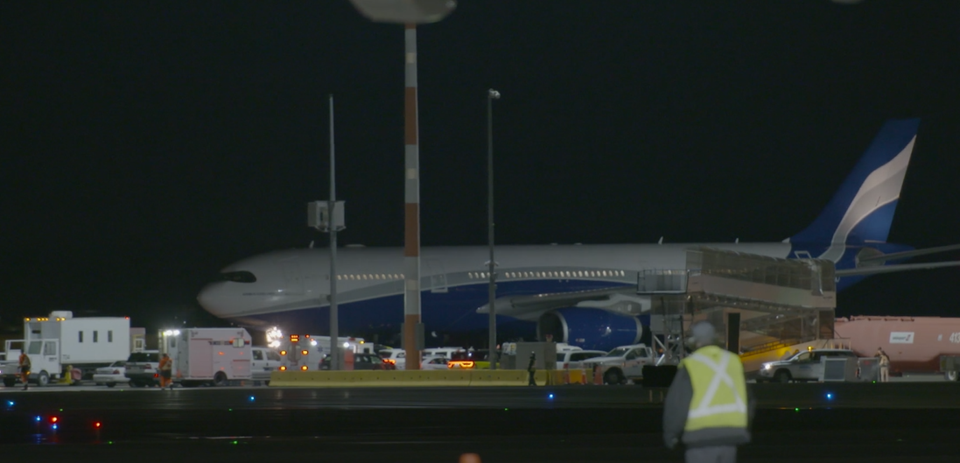Canadians should postpone or cancel all non-essential travel outside of the country in an effort to curb the spread of COVID-19, the federal government announced Friday.
Planes arriving in Canada will also be restricted to landing at certain airports — although it’s not yet clear which ones — and all cruise ships carrying over 500 people will not be able to stop in Canada until the summer.
The announcement came after B.C. and Alberta advised against all non-essential international travel Thursday. And earlier this week, the World Health Organization declared the coronavirus outbreak a pandemic.
“My advice is to postpone or cancel all non-essential travel outside Canada,” said Canada’s Chief Public Health Officer Dr. Theresa Tam.
“This means reconsidering your vacations. By making the choice to stay at home and not travel outside of Canada, you are protecting yourself, your family and doing your part to slow the spread of the virus.”
This advice is “especially important” for older adults or people with underlying conditions, said Tam.
Anyone who travels outside of Canada may also be subject to other countries’ measures to limit the spread of COVID-19.
“It’s also important to remember that if you travel abroad, you could be subjected to the measures of other countries,” said Tam, adding that travellers could also be in a health care system inferior to Canada’s.
Large events should also be cancelled, said Tam, such as conferences, concerts and large social or religious gatherings.
Health Minister Patty Hajdu said that this is a “critical time” for Canada to try to slow the spread of the virus.
“Given that there is increased travel happening over the next several weeks, and given that we are at a critical time in keeping our cases down,” said Hajdu, “this is the determination that public health has provided us that is essential in terms of our next steps.”
Spring break is set to begin next week for many provinces, including B.C.
The federal government has also imposed additional measures on cruise ships, said Minister of Transport Marc Garneau.
All cruise ships carrying over 500 people, including crew, will not be able to stop in Canada until July 1, he said.
This follows Tam’s March 9 warning to not travel on cruise ships.
“These decisions were not easy to make,” said Garneau. “We are aware of the impacts they will have.”
In the arctic, the ban will apply to the entire 2020 cruise season, because there are not “adequate health resources in that part of the country,” Garneau added.
There are now over 150 confirmed or presumptive cases of COVID-19 in Canada, with B.C., Alberta, Manitoba, Ontario, Saskatechwan, New Brunswick and Quebec all reporting cases.
Sophie Gregoire Trudeau, Prime Minister Justin Trudeau's wife, is among those who tested positive for the virus.
The prime minister is now in isolation for the next 14 days, along with his wife and children, and said during a press conference Friday from his home in Ottawa that he is feeling fine and has no symptoms.
Globally, 139,481 cases of COVD-19 have been reported as of Friday morning, with 5,120 deaths. Of the reported cases, 70,733 have recovered.



